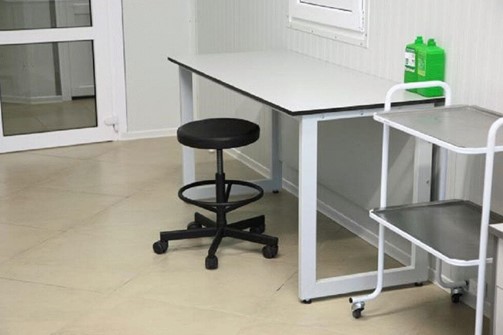The Ministry of Economy sharply improved the forecast for the decline in Russian GDP
According to the results of 2022, Russia's GDP will decrease by 2.9%, and by 0.8% in 2023, according to the basic version of the forecast for the socio-economic development of RUSSIA, which was presented on Wednesday, September 21, by Minister of Economic Development Maxim Reshetnikov at a government meeting. hour in the Federation Council.
Back in mid-August, the Ministry of Economic Development expected that GDP would fall by 4.2% in 2022, and by 2.7% in 2023. However, then First Deputy Prime Minister Andrei Belousov said that GDP this year could decline by less than 3%. “This year, most likely, we will have a decline of less than 3% - somewhere around 2% with a small percentage, next year there is every chance to limit the decline to 1% and get minus 0.6–0.8%,” said Belousov 29 August.
video
Target Scenario
“According to the forecast, the bottom point of the economic recession will be passed in the fourth quarter of 2022,” Reshetnikov said in the Federation Council. The main version of the forecast is the scenario of the continuation of the "accelerated adaptation" of the economy to new conditions, he pointed out (in fact, the target scenario). In 2024 and 2025, the economy will already grow at a rate of 2.6% per year, according to the Ministry of Economy. The accelerated adaptation scenario provides for import substitution, development of transport and logistics corridors, reorientation of EXPORT deliveries to the East, accelerated digitalization, stimulation of private investment activity, etc.
The real incomes of Russians in 2022 will decrease by 2%, but in 2023 they will grow by 2%, follows from the materials of the press service of the Ministry of Economic Development. However, investments in fixed assets will decline for two years: by 2% in 2022 and by 1% in 2023. At the same time, the decline in 2023 will be due to the high base of the first half of 2022 (during this period, investments grew by 7.8%, according to the ministry, due to the desire of businesses to quickly complete the investment projects that have been started). And then the growth of investments will outpace the dynamics of GDP, including through large public investments, they hope in the Ministry of Economy.
Consumer demand has passed the bottom of the recession and is recovering, Reshetnikov said. According to the forecast of the ministry, the retail trade turnover in 2023 will grow by 2.7% after a decline of 6.1% this year.
Read on RBC Pro Pro Digital Addiction:How to Stop Gadget Distractions Summary Pro How Amazon Earned a Monster Employer Reputation in Six PointsPro Hunt for "black swans": how to increase the efficiency of the work of consciousness Articles Pro Four reactions to fear,which will only strengthen it Articles Pro Talent Management:how to develop employees and ensure their growth Lecture Pro What causes memory problems and 7 ways to deal with them ArticlesPro "Twice a week I deprive myself of lunch": the founder of Dyson - about the diet Articles Pro "Socialist" States of America:how pension funds affect business ArticlesForecast Risks
However, Reshetnikov warned that the risks to the forecast are, in particular, the slowdown in the Chinese economy and the tightening of Western sanctions. Russia could face new sanctions if referendums are held in the Donbass and Ukrainian territories to join Russia, EU High Representative for Foreign Policy and Security Policy Josep Borrell said on September 20.
The minister did not indicate whether the forecast, which forms the basis of the federal budget for next year, took into account the announcement of a partial mobilization on 21 September. Defense Minister Sergei Shoigu specified that up to 300,000 reservists would be called up for partial mobilization.
The representative of the Ministry of Economic Development did not answer the question whether partial mobilization was (will be) taken into account in the forecast. “Certainly, there remain risks associated with high uncertainty in the global economy. This, in particular, and the possible tightening of sanctions. Therefore, our forecasts are based on the logic of ensuring the stability of the economy not only in the face of already imposed sanctions, but also in the face of potential risks,” the ministry said.
The macro forecast of the Ministry of Economic Development is included in the draft federal budget for 2023-2025, which was approved on September 20 at a meeting of the government commission on budget projections. The government expects the budget to be in deficit for all three years (after the expected deficit in 2022): in particular, in 2023-2024, the negative balance will amount to 4.5 trillion rubles.
At the government hour, the auditor of the Accounts Chamber, Dmitry Zaitsev, expressed doubts about the realism of some of the premises of the Ministry of Economic Development. In particular, he believes that the forecast volumes of investment and intermediate imports (raw materials, materials, machinery, equipment) are overstated, and the population may show more restrained consumer behavior. “In the forecast, the balance of payments by 2025 is gradually declining. The predicted parameters lead to the hypothesis of the stability of the ruble exchange rate with its slight weakening. This leads to overly optimistic estimates of budget revenues from foreign trade operations,” Zaitsev warned.




























































